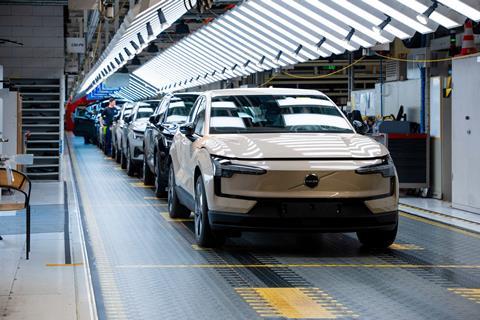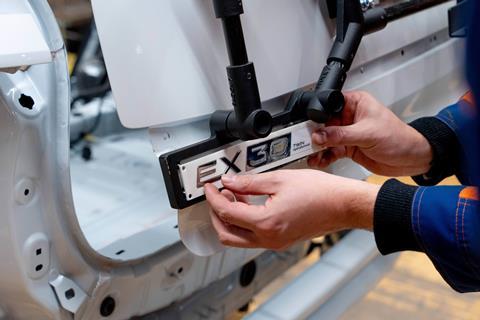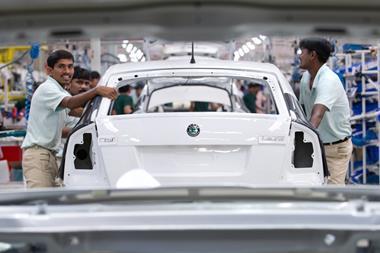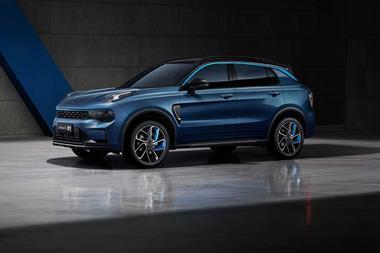Volvo Cars has started building its best-selling EX30 EV at its Ghent plant, investing €200m ($227m) to expand flexible production, create hundreds of new jobs and align output more closely with growing European demand.

Volvo Cars has started building its best-selling EX30 electric SUV at its manufacturing plant in Ghent, Belgium, marking a strategic expansion of its European production footprint. The decision, announced in late 2023, reflects the company’s ambition to bring output closer to end markets and respond more quickly to growing demand for compact electric vehicles.
“The EX30 is crucial for us as we continue to strengthen our position in the premium EV market in Europe”
- Francesca Gamboni, Chief Manufacturing and Supply Chain Officer, Volvo Cars
The EX30, which has emerged as one of Europe’s top-selling electric cars in 2024, has been popular with customers since its launch in late 2023. The start of production in Ghent comes ahead of the forthcoming EX30 Cross Country variant, also set to be built at the site later this year.

“The EX30 is crucial for us as we continue to strengthen our position in the premium EV market in Europe,” said Francesca Gamboni, chief manufacturing and supply chain officer for Volvo Cars. “Investing in the European production of the EX30 in Ghent perfectly aligns with our long-held strategy to build our cars where they sell best. Our flexible global footprint contributes to our resilience, allowing us to adjust our manufacturing plans with agility.”
The move forms part of a wider investment of around €200 million ($227m) in Volvo’s Belgian facility. Recent upgrades to the site include the integration of an entirely new vehicle platform, nearly 600 new or refurbished robots, an extension of the battery hall, a dedicated new door production line and a fresh battery pack assembly line.
Read more Volvo stories
- Battery production and design need to be optimised together
- Volvo Cars realigns manufacturing, procurement and supply chain management
- GM, Stellantis and Volvo Group to gain $1.7 billion in EV grants
These changes have enabled the Ghent plant not only to take on EX30 production in a matter of months but also to sharpen its role as a hub for Volvo’s electrified portfolio. In addition to the EX30, the facility produces the EX40 and EC40 electric models, as well as the XC40 and V60 plug-in hybrid vehicles. In 2024, the plant built just over 186,000 vehicles.
Located on the edge of Ghent, Belgium’s third-largest city and part of its North Sea port area, the plant has been in operation since 1965 and remains the country’s only fully developed car manufacturing facility. It is one of two car plants Volvo operates in Europe alongside Torslanda in Sweden. A third facility is currently under construction in Slovakia.
“Thanks to the engagement and collaboration of the entire Ghent team, we cut the industrialisation time in half”
- Stefan Fesser, Manager, Volvo Car plant, Ghent
“Following a decision in autumn 2023 to bring production of the EX30 to Ghent, we were able to industrialise the new model in record time,” said Stefan Fesser, manager of the Volvo Car plant in Ghent. “Thanks to the engagement and collaboration of the entire Ghent team, we cut the industrialisation time in half. Today, we are extremely proud to welcome the EX30 and demonstrate that new technology and innovation enable us to react more flexibly to market demands.”
The decision to add EX30 capacity in Belgium is also aligned with European Union goals to strengthen domestic manufacturing and secure clean-tech supply chains. By locating more electric vehicle production within the bloc, Volvo is reinforcing its position in the region’s industrial transition while reducing logistical and environmental costs.
The expansion has also led to the creation of around 350 new jobs at the Ghent facility, bringing total employment at the site to nearly 6,600 people.
Between Ghent and Torslanda, Volvo now produces 10 electric and hybrid models in Europe, forming the backbone of its electrification strategy and enhancing the agility of its global supply network.






































No comments yet